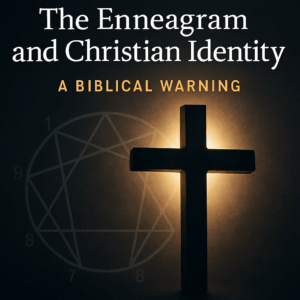⏱️ Estimated Reading Time: 6 min read
Suppose a young man came to you for biblical counseling concerning the ongoing tension and conflict with his ‘partner.’ Oh, by the way, he and his girlfriend are living together, though there has never been a wedding. He says to you, “Well, we’ve already committed to each other, so in our eyes, we’re already married!” Are you ready to open the Word of God to unfold God’s definition of marriage and that in God’s eyes, the two are fornicating? Where is the covenant of committed marital love for the two companions for a lifetime, as they live and do ministry together to the glory of God, in contrast to the world’s view of sticking together as long as the good times roll? And even if they are not Christians, who are exhorted to ‘avoid all appearance of evil’ (1 Thess 5:22), by denying the creation ordinance of marriage, they attack the family structure that is part of the fabric of society, as God created it to be.
Here is the proposal: marriage is a public, formal, and officially recognized covenant between a man and a woman (biologically/genetically determined). They pledge fidelity for a lifetime.
Look at the prototype of marriage in the first union mentioned in Scripture. With Adam and Eve, it was a public declaration by a male and female that they belong to one another as husband and wife (Gen 2:23-25). The two have both left behind the parent-child relationship and begun the new relationship in cleaving to one another for a lifetime and becoming one in all areas of life (emotionally, spiritually, intellectually, physically, etc.).
John MacArthur writes, “Marriage has only one definition, and it is sanctioned by God: the union of one man and one woman. Marriage is a public, formal, and officially recognized covenant between a man and a woman. Prolonged conjugal cohabitation does not establish and is not equivalent to marriage.”[1]
To say that is to negate the ‘sexual intercourse’ view in which the man and woman are not officially married until/unless they consummate the marriage bed. Marriage is so much more than legalized sex in God’s eyes. Recall Jesus’ evangelism of the woman at the well in John 4:18. Jesus told the woman that though she was involved with a man, they were not married.
If folks could just say ‘we’re committed to each other’ and thus live with each other, there would be no such thing as fornication (which is clearly and abundantly taught throughout Scripture) because once they had sex, they’d be married instead of being guilty of wickedness.
Later on, in Genesis 24, you see an informal description of a marriage ceremony. There is possibly more to the story, since Scripture often does not go into all the details, but here Isaac and Rebekah are married and then intimate.
Furthermore, in another OT account, Shechem and Dinah lay together sexually, as his soul was drawn to her (Gen 34:2-3), but the marriage covenant of commitment was still missing. Thus, Hamor suggested the need for marriages between their tribes (Gen 34:8-9). Granted, the above example is a sexual sin, particularly rape. Yet, the Scriptures teach the spiritual (not merely the physical, biological union) of those who engage in sex. The believer is to use their physical body for spiritual enterprise and glorify God with it in the spiritual covenant of marriage (1 Cor 6:12-20). The context for everything sex, i.e., the marriage bed, is between a husband and wife, period (Heb 13:4).
So even by this time in the book of beginnings, we see life unfolding in a cultural context. Here in the United States, marriage’s cultural and official recognition could be as simple as getting married at city hall with an official.
Consider the institution of government (Rom 13:1-7; 1 Pet 2:17) and how Jesus did not give allowance to breach man’s law if it does not contradict God’s law (Matt 22:15-22). Thus, if the government requires certain procedures and paperwork before recognizing a relationship as a marriage, the couple must submit themselves to that process.
Yet, even in cultures where there is no government recognition of marriage, there is still to be the recognition of the marital union through a formal wedding ceremony. Nearly every society has observed some ceremony that seals the covenant union.
Of course, there are no specifics as to what the ceremony must look like, though we see the biblical implications that the two become one, committed for a lifetime of service.
Recall the account in John 2 in which the Lord attended an official wedding, recognizing it as a legitimate marriage.
Whether the couple decides to have an elaborate ceremony, officiated by clergy, or go to the courthouse, the marital vows of covenant love and fidelity need to be that official ratification. Any sex before that recognized marital union is biblically considered immorality (1 Cor 7:2) and is a sin characteristic of unbelievers, not believers (1 Cor 6:9). In other words, the couple cannot just declare themselves committed to each other to salve their consciences that their sexual relations are moral and God-honoring.
Perhaps we could think of it from a couple of different angles. CHRISTIAN marriage, which comes with the promised blessing of God, is a spiritual covenant or commitment (not a contract), which God establishes, and then sealed by the wedding ceremony (in essence, a worship service), and personal vows given by the couple and culminated in sexual intimacy (as physically able). There is also SECULAR marriage, which is still recognized by God, where there is a social contract established by the government and sealed by legal registration (or cultural equivalent). But there are no grounds, biblical or secular, for the PSEUDO marriage, which is forbidden by God and not recognized by man, when there is no social contract or recognition, yet there is cohabitation and fornication.[2]
[1] MacArthur, John, and Mayhue, Richard, Biblical Doctrine: A Systematic Summary of Bible Truth.
[2] For further study, “Marriage, Marriage Customs in Bible Times,” L. I. Granberg and J. R. Root in Evangelical Dictionary of Theology, 740-44.




